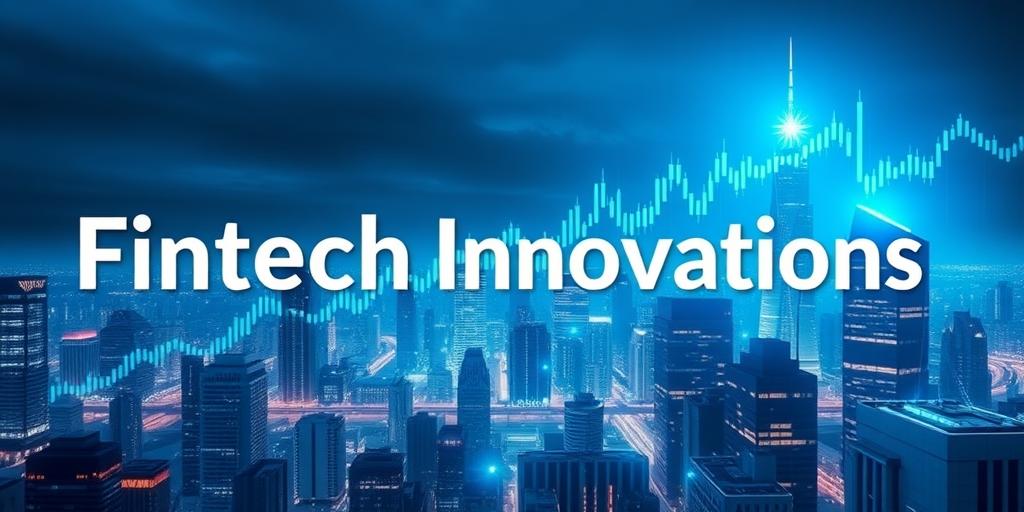Fintech Innovations Creating Buzz
The financial technology (Fintech) sector is experiencing rapid innovation, transforming how we manage money, access financial services, and conduct business. Several key areas are generating significant buzz and attracting attention from investors, consumers, and industry experts alike.
1. Blockchain and Cryptocurrency Advancements
Blockchain technology continues to be a major disruptor in the fintech space. Beyond cryptocurrencies like Bitcoin and Ethereum, blockchain is being used to enhance security, transparency, and efficiency in various financial applications.
- Decentralized Finance (DeFi): DeFi platforms offer lending, borrowing, and trading services without traditional intermediaries, leveraging smart contracts to automate processes and reduce costs.
- Stablecoins: These cryptocurrencies are pegged to a stable asset like the US dollar, providing a less volatile alternative for transactions and payments.
- Blockchain-Based Identity Verification: Secure and tamper-proof digital identities are being developed using blockchain to streamline KYC (Know Your Customer) and AML (Anti-Money Laundering) processes.
2. AI and Machine Learning Applications
Artificial intelligence (AI) and machine learning (ML) are revolutionizing financial services by automating tasks, improving decision-making, and personalizing customer experiences.
- Algorithmic Trading: AI-powered algorithms analyze market data to execute trades at optimal times, improving efficiency and profitability.
- Fraud Detection: ML models identify and prevent fraudulent transactions in real-time, protecting businesses and consumers from financial losses.
- Personalized Financial Advice: AI-driven robo-advisors provide customized investment recommendations based on individual financial goals and risk tolerance.
3. Mobile Payments and Digital Wallets
The adoption of mobile payments and digital wallets continues to surge, driven by convenience, security, and increasing smartphone penetration.
- Contactless Payments: NFC (Near Field Communication) technology enables quick and easy payments at point-of-sale terminals, enhancing the customer experience.
- Digital Wallets: Apps like Apple Pay, Google Pay, and Samsung Pay allow users to store payment information securely on their devices and make transactions online and in-store.
- Mobile Banking: Banks are increasingly offering mobile banking apps with a wide range of features, including account management, bill payments, and peer-to-peer transfers.
4. Open Banking and APIs
Open Banking is transforming the financial industry by enabling third-party developers to access customer data and build innovative applications using APIs (Application Programming Interfaces).
- Account Aggregation: Users can view and manage multiple bank accounts from different institutions in a single app.
- Personalized Financial Management: Third-party apps can analyze transaction data to provide personalized budgeting, savings, and investment advice.
- Streamlined Loan Applications: Lenders can access customer financial data with their consent to automate the loan application process and make faster credit decisions.
5. RegTech Solutions
Regulatory Technology (RegTech) is an emerging field focused on using technology to streamline regulatory compliance and reduce operational costs.
- Automated Compliance Monitoring: RegTech solutions automate the monitoring of regulatory requirements, ensuring that financial institutions remain compliant with changing laws and regulations.
- Risk Management: Advanced analytics and AI are used to identify and mitigate risks, improving overall risk management practices.
- Reporting and Analytics: RegTech platforms automate the generation of regulatory reports, reducing the burden on compliance teams.
Conclusion
Fintech innovations are reshaping the financial landscape, creating new opportunities for businesses and consumers. From blockchain and AI to mobile payments and RegTech, these technologies are driving efficiency, transparency, and accessibility in the financial industry. As these trends continue to evolve, it is essential for stakeholders to stay informed and adapt to the changing environment to harness the full potential of fintech.









